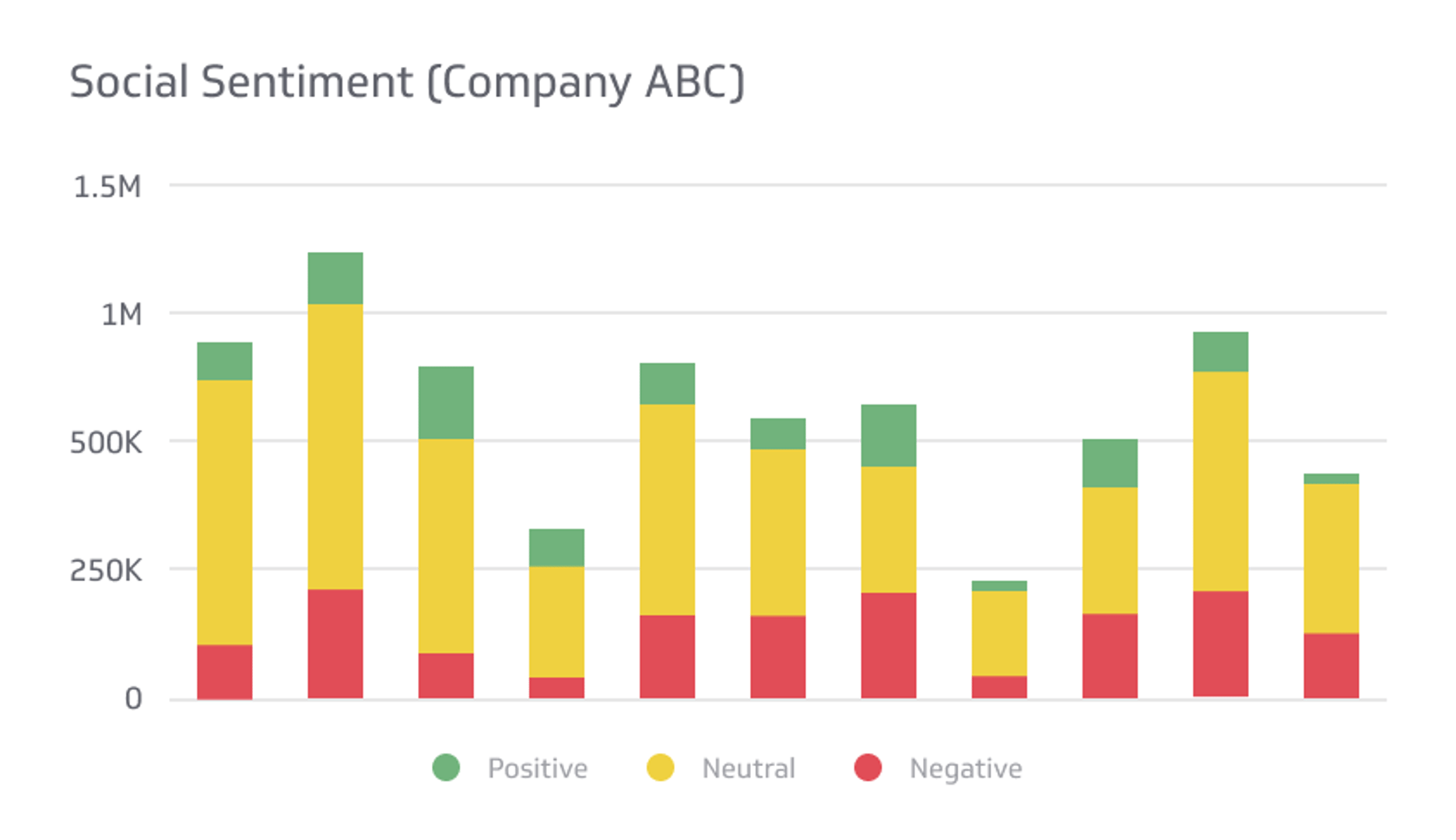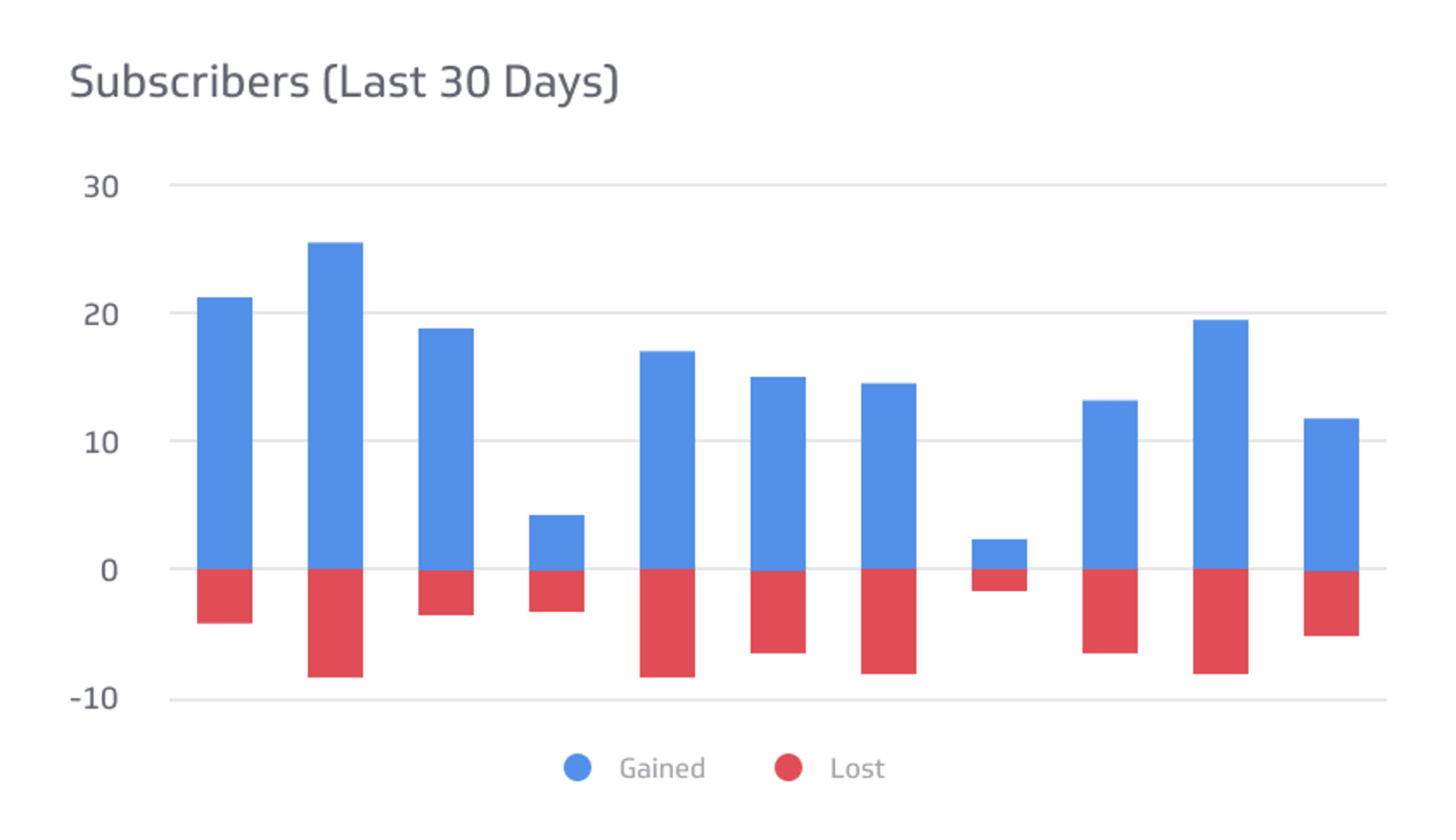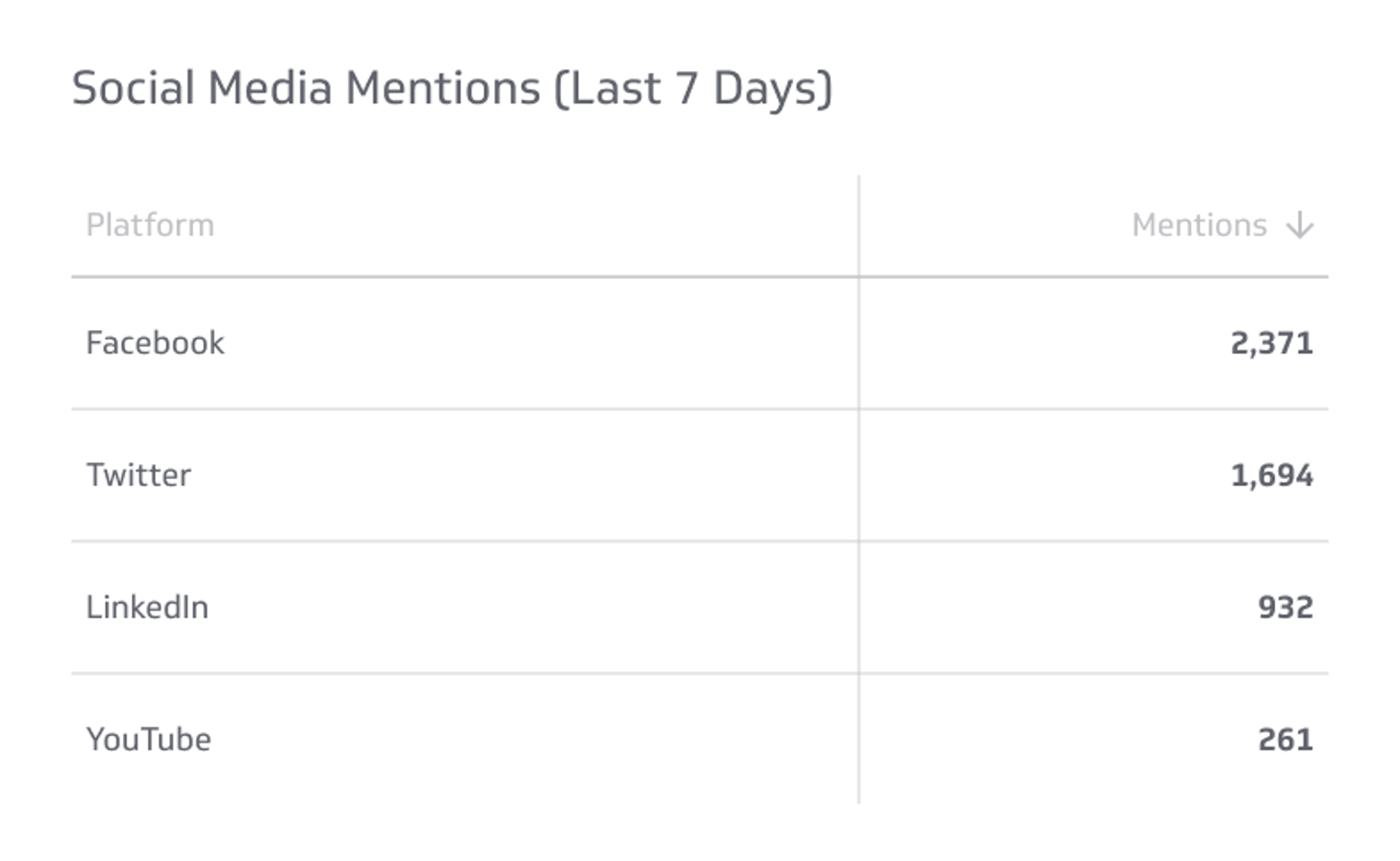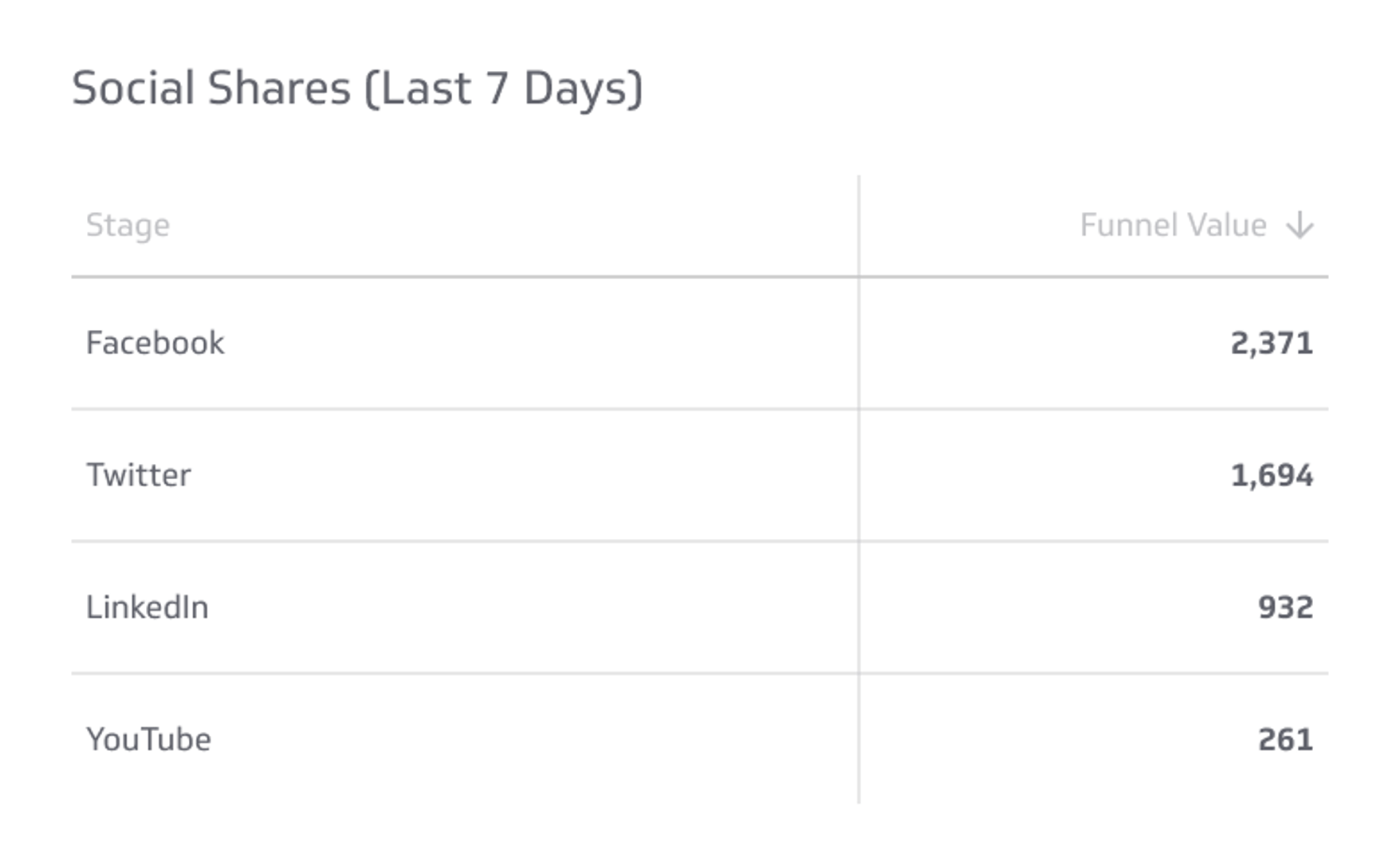Social Sentiment
Brand Perceptions and Brand Equity.
Track all your Social Media KPIs in one place
Sign up for free and start making decisions for your business with confidence.

What is Social Sentiment?
Social sentiment, also known as sentiment analysis or opinion mining, is a method used to analyze and interpret people's emotions, opinions, and attitudes toward a specific topic, product, or entity. This is typically done by evaluating the language and expressions used in text data, such as social media posts, reviews, or comments.
The goal of social sentiment analysis is to understand the general feeling or attitude of the public toward the subject in question.
Why Social Sentiment is Important
Social Sentiment about brands plays out in brand mentions across a wide variety of digital channels, from social media to blogs to press releases. Advanced social listening and analytics platforms like Hootsuite, Brandwatch, and Talkwalker help brands understand the sentiment behind brand mentions, equipping them with the information they need to engage in the right conversations at the right time to keep the brand strategy on track.
Social sentiment analysis involves categorizing each brand mention as ‘negative’, ‘positive’ or ‘neutral’ to the brand. How are mentions categorized? “We analyze each word and give them a tone” says Jeremy Bernier, Strategic Partner Manager at Talkwalker. Each word is assigned a number of points: “happy is positive (+ 5), and unhappy ( -5) is negative.” “On top of this we have a Natural Language Processing (NLP) engine which allows the platform to understand the grammatical structure of the sentence”, says Bernier. “I am not happy” is negative even if the word ‘happy’ is in the sentence because of the negation that precedes it”.
Social Sentiment Benchmark
There is no established benchmark for social sentiment because consumers engage in social media differently depending on the product or service. But benchmarks are important, so what do you do?! Luckily, Hootsuite, Brandwatch and Talkwalker benchmark your brand against your closest competition.
Social Sentiment Challenges
Bernier acknowledges that machines won’t be able to analyze the sentiment behind mentions as accurately as humans as they don’t understand humour or irony. However, utilizing these tools, “social sentiment analysis is accurate 70-75% of the time”, he says. Also, social sentiment works best with large amounts of data.
Social Sentiment Best Practices
- It’s essential that you understand the methodology behinds the social sentiment platform you use--especially the margin of error--to help you understand the context of your reports.
- It’s good to always keep an eye on the social sentiment of your brand, but it’s especially important to check sentiment before and after a campaign to determine campaign success.
How to Monitor Your Social Sentiment in Real-time
Once you have established benchmarks and targets for measuring Social Sentiment, you’ll want to establish processes for monitoring this and other social media KPIs. Dashboards can be critical in this regard.
Learn more about how to track your Social Sentiment on a Social Media Dashboard.
Social Sentiment: Top Resources
On Social Sentiment and Sentiment Analysis, Ben Donker
Related Metrics & KPIs

.png)

